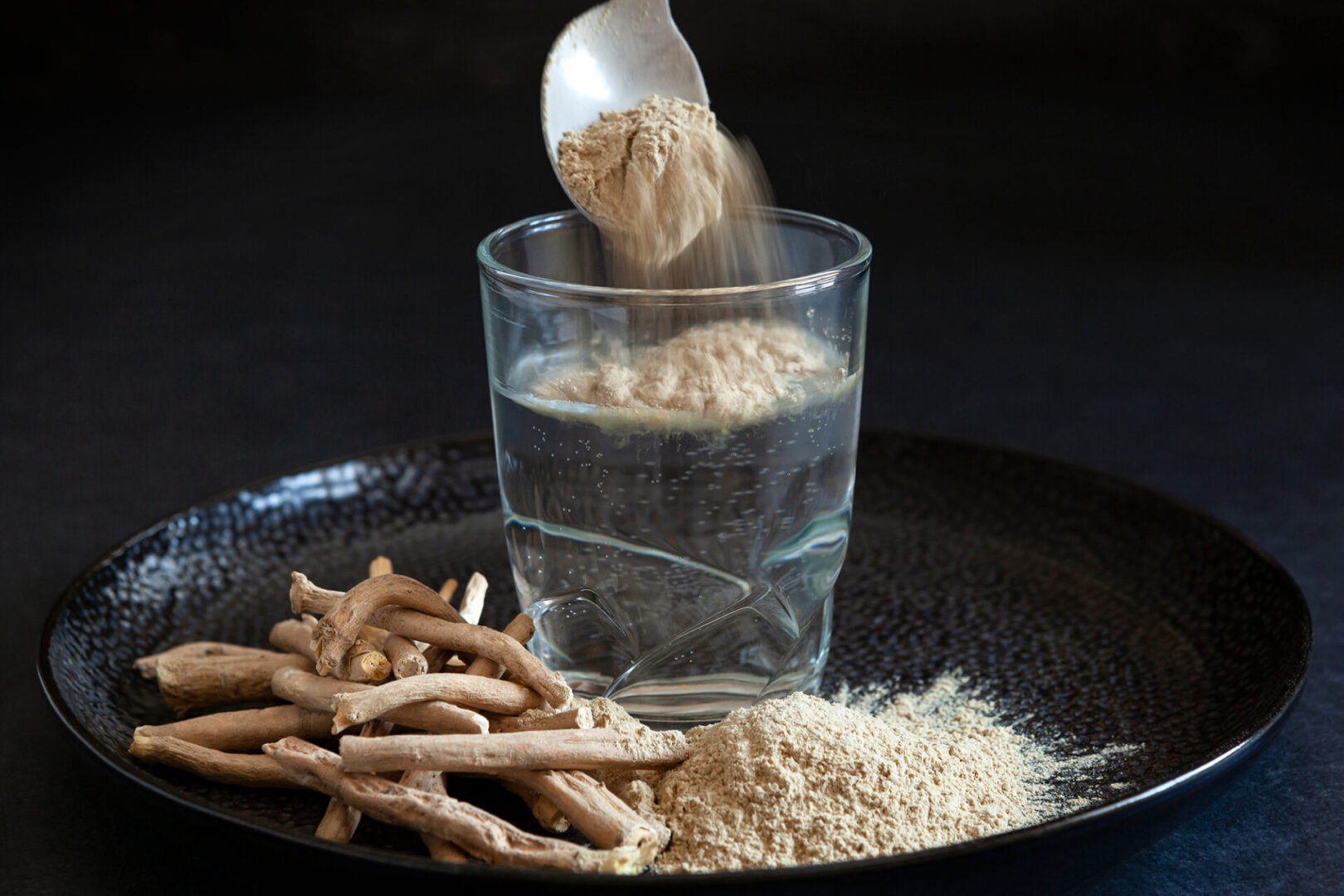Ashwaghanda

Could Ashwaghanda help with your menopause symptoms
Ashwagandha (Withania somnifera) is fast becoming one of the most popular ingredients in wellness supplements, especially when it comes to perimenopause/menopause. It’s said to help in reducing stress and anxiety as well as improving brain function, among other things – but do the claims stack up?
Ashwagandha, or Indian Gensing, is an herb that’s been used in Ayurvedic medicine for centuries. It is what’s said to be an adaptogen – a natural substance that is believed to help the body adapt to stress and maintain a state of balance, or homeostasis.
While it is generally considered safe for most people when used in moderation, the scientific evidence for its potential health benefits is sometimes conflicting and often of poor quality with results coming from small studies that aren’t randomised or placebo controlled.
What could Ashwagandha help with?
These are some areas where ashwagandha is said to be beneficial:
- Stress and Anxiety Reduction: Several small studies studies have suggested that ashwagandha may help reduce stress and anxiety. A recent meta-analysis (1) showed there were some good results but the studies were questionable due to their low quality evidence supporting its role in stress and anxiety (2). The studies included in the meta-analysis were done on people aged between 25-48
- Cognitive Function: Again there are some small studies that have shown improvements in memory and cognitive function (3) but more research is needed to confirm these effects.
- Anti-Inflammatory Properties: Ashwagandha contains anti-oxididant compounds that are said to have anti-inflammatory properties. Some studies have shown it can help reduce oxidative stress (4). Investigations into its potential role in reducing inflammation in the body are ongoing.
- Immune System Support: Ashwagandha is being studied for its potential to support the immune system in long covid and prostate cancer. Some research suggests that it may enhance immune function by increasing the activity of immune cells but more research is needed.
- Physical Performance and Muscle Strength: Some athletes and bodybuilders use ashwagandha as a supplement to improve muscle strength. A small study in young men has shown there was an improvement in muscle mass in those taking it (5) but more research is needed. Another study showed there was very little difference in men aged 40-70 who were taking it in terms of reducing fatigue, energy levels or sexual wellbeing or reduced cortisol levels(6). The majority of these studies were done on men, not women.
- Sleep: some studies have shown it may help in improving sleep especially in those who suffer from insomnia (7).
It seems ashwagandha may have some promising benefits in some areas but as always, more research is needed.
Always tell your doctor if you are taking supplements as there may be interactions with medication that have been prescribed for you.
Also, look for the supplements from reputable producers who meet Good Manufacturing Practices (GMP) standards to ensure you’re getting what you paid for.
References:
- https://pubmed.ncbi.nlm.nih.gov/36017529/
- https://pubmed.ncbi.nlm.nih.gov/31517876/
- https://pubmed.ncbi.nlm.nih.gov/34858513/
- https://pubmed.ncbi.nlm.nih.gov/26306935/
- https://pubmed.ncbi.nlm.nih.gov/26609282/
- https://pubmed.ncbi.nlm.nih.gov/30854916/
- https://pubmed.ncbi.nlm.nih.gov/34559859/
- https://pubmed.ncbi.nlm.nih.gov/32818573/

